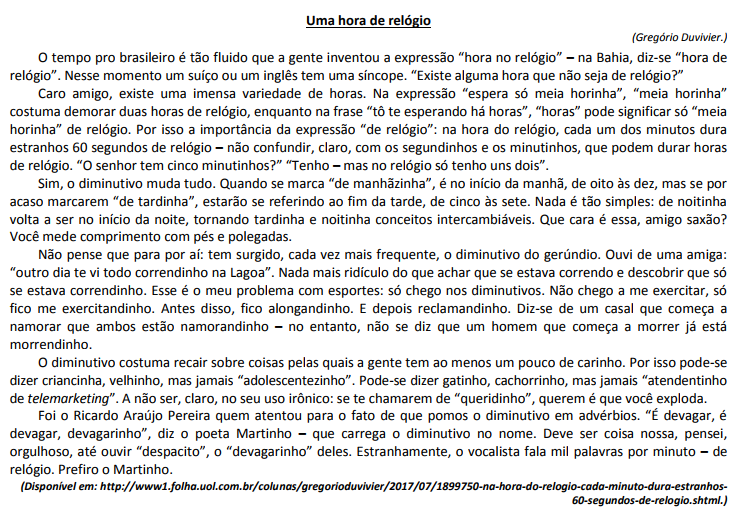
O sentido maior
Quando eu era jovem, um padre dava aulas sobre Tomás de Aquino (1225-1274), doutor da igreja e teólogo global. O tema eram as cinco provas da existência de Deus. Após a exposição, o jesuíta contou, como arremate de uma boa aula, um caso sobre o doutor angélico. Disse que, após o italiano ter
escrito coisas profundas e enormes sobre a divindade, teve um êxtase místico e, segundo a narrativa, uma compreensão de Deus além da Razão, além da Escolástica, além de Aristóteles e de toda a gramática possível de um cérebro humano. Ao sair da “divina possessão”, ele emudeceu e resistiu a continuar
escrevendo sua já famosa obra. Motivo? Para ele, após o contato com Deus na forma direta que os místicos vivem, o que ele escrevera sob o rigor acadêmico e com base erudita, parecia-lhe superficial, fraco, pífio, irrelevante e tão distante do que experimentara que ficou abatido. Bem, antes de partir precocemente
do mundo, Tomás terminou ditando comentários ao Cântico dos Cânticos, o poema amoroso salomônico que possui dezenas de interpretações. Curioso que a última obra do grande intelectual católico seja sobre o amor.
A história narrada traz uma questão que sempre me assombrou. Em todos os campos, inúmeras pessoas ao meu redor falam de uma densidade maior atrás do simples discurso ou do sentimento imediato. Sim, você pode ler os mais refinados teólogos, porém, sempre serão pálida sombra do objeto sagrado em si. O mesmo valeria para as emoções humanas como o amor. Romeu indica várias vezes a Julieta (e é correspondido) que as palavras são irrelevantes, que o que eles sentem está além da expressão delas. Já vi discursos semelhantes sobre arte e até sexo. Haveria uma densidade, uma complexidade, algo tão imenso que tudo o que eu possa expressar seria incompleto.
Sempre desconfiei um pouco da afirmação sobre a densidade extraordinária que tornaria as coisas indizíveis. Por vezes acho que devo ter uma capacidade melhor de expressão ou uma capacidade menor de sentir. Um dos itens explica o fato de eu achar que as coisas são no limite do que consigo expressar e que não possuem uma película que esconde o “mais além” de uma metafísica absoluta.
A leitura de boas obras sempre me pareceu muito prazerosa, muito, exatamente porque as ideias, a estética da escrita, o encadeamento de personagens ou de fatos e as soluções dos bons autores me seduzem. Uma taça boa de vinho ou uma noite amorosa são extraordinárias pelo que são em si, pelo prazer ali contido, pelas papilas gustativas agraciadas, pelos hormônios atiçados, pelos disparos de adrenalina e outras coisas. Não perco a consciência, não letivo, não transfiguro, não tenho êxtase: apenas gosto e sinto o motivo de eu gostar, alguns surpreendentes. Seria bom em descrever ou ruim em sentir de forma mais densa? Faltaria metafísica ou abundaria consciência? A descrição que alguns fazem de suas experiências sempre me pareceu fascinante e sedutora e profundamente distante do plano no qual eu sinto. Idiossincrasia? Couraça racional? Seria lucidez ou secura? Nunca saberei de fato, mas o vinho sempre pareceu bom, o texto fascinante, o sexo envolvente, o afeto belo, a boa música avassaladora e a paisagem produtora de paz interna. Já chorei de alegria diante de experiências lindas como um quadro que eu desejava conhecer ou quando desci ao Grand Canyon nos Estados Unidos. Eram lágrimas provocadas pela emoção de beleza, uma invasão positiva de muitos bons sentimentos que antigas expectativas estimularam. Era emoção, não transcendência que me derrubasse ao solo impactado pelo eterno.Vários filósofos chamaram isso de maravilhar-se, uma suspensão momentânea da racionalidade junto de incapacidade de narrar o experienciado. Mas, passado alguns instantes, recuperamos a lógica narrativa. Eu estava feliz porque era bom estar ali, porque
eu desejara estar ali, porque eu me preparara para estar ali e porque, enfim estando, se fechava um ciclo de ansiedadedesejo-prazer produzindo o momento único e... lacrimoso. Foi muito bom, excelente até, todavia foi aquilo e eu posso descrever o início, o meio e o fim daquele instante. Por vezes lembro-me da
experiência de um “banho xamânico” em Oaxaca, no México. A guia da experiência dizia que aspirássemos as plantas naquela sauna e que imaginássemos a luz lilás sobre nós. Aluno fiel, eu aspirava a planta acre que ela jogara às brasas e imaginava a luz lilás. Ao final de meia hora de exercício imaginativo, ela me
perguntou o que eu tinha sentido e eu disse: “Um cheiro forte dessa planta”. Ela insistia: “E?”. “Só”, eu respondia à desolada senhora. Eu sentira o cheiro e imaginara a luz. Foi minha experiência xamânica. Na verdade, é minha experiência de vida. As coisas são no limite do que existem, sem energias ou algo muito mais denso escondido pelo véu do discurso. Onde alguns descrevem alguém de “energia pesada”, eu vejo um chato agressivo. Não há uma “aura”, apenas frases desagradáveis ou reclamações incessantes. Onde identificam “vampiros de energia” eu vejo alguém irritante. Seria a mesma coisa? Volto ao que eu sinto (sem fazer disso uma definição de valor universal): as coisas são no limite do que existem. Dou a elas sentido, simbolismo, signos aleatórios e que dependem da minha imaginação, sem “energia”. Essa é imensa solidão da consciência, ou, ao menos, da minha consciência. Uma boa semana para todos.
(KARNAL, Leandro. Sentido maior. O Estado de São Paulo, São Paulo,19/01/2020. Caderno 2, p. C2.)
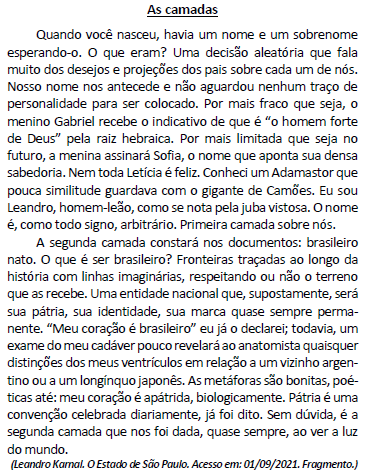
Em relação ao texto, analise as afirmativas a seguir.
I. A estrutura do texto é apenas descritiva, tendo em vista que o autor apresenta um conceito e se limita a defini-lo.
II. Como recurso de produção textual, o autor explicita dois questionamentos que guiam o encadeamento lógico das ideias apresentadas por ele.
III. Nos dois parágrafos, são utilizados exemplos para fundamentar o raciocínio desenvolvido e provar o que está sendo dito no texto.
Está correto o que se afirma apenas em
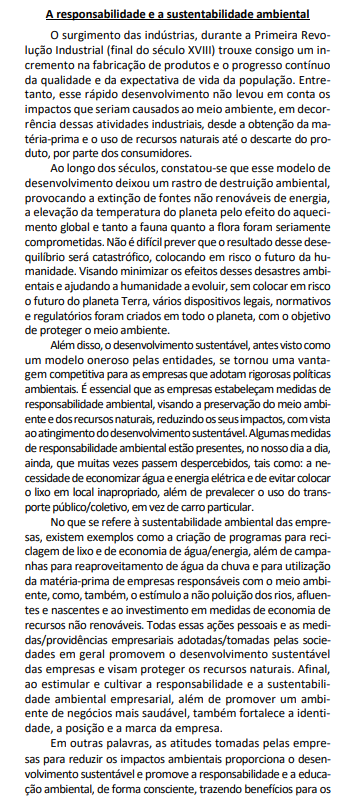
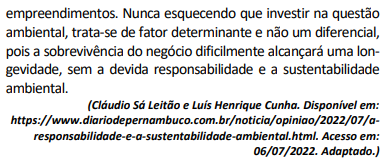
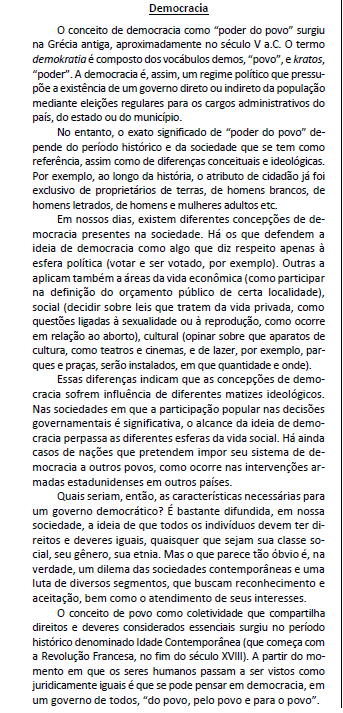
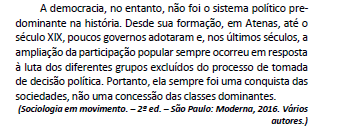
A expressão empregada para introduzir o 2º§ do texto indica:
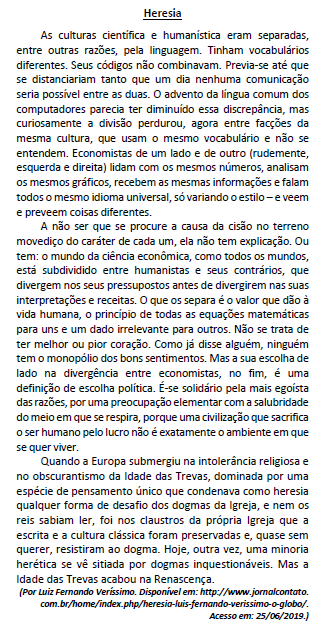
As famílias da sociedade órfã
A família transformou-se em bode expiatório das mazelas de nossa sociedade. Crianças se descontrolam, brigam, desobedecem? Jovens fazem algazarras, bebem em demasia, usam drogas ilegais, namoram escandalosamente em espaços públicos? Faltou educação de berço. Como é bom ter uma "Geni" para nela atirar todas as pedras, principalmente quando se trata dos mais novos. Até o Secretário Estadual da Educação de São Paulo, em um artigo de sua autoria, para defender sua tese de que estamos vivendo em uma "sociedade órfã", inicia suas justificativas afirmando que "... a fragmentação da família, a perda de importância da figura paterna – e também a materna – a irrelevância da Igreja e da Escola em múltiplos ambientes geram um convívio amorfo". As escolas também costumam agir assim: quando um aluno é considerado problemático e indisciplinado, ou apresenta um ritmo de aprendizagem diferente do esperado pela instituição, a família é chamada para resolver o "problema". Vamos refletir sobre expressões usadas a respeito da família: "família fragmentada", "família desestruturada", "família disfuncional", "família sem valores" e outras semelhantes. Não lhe parece, caro leitor, que tais expressões apontam na direção de que a família decidiu entornar o caldo da sociedade? Não é a família que está fragmentada: é a vida. Hoje, os tratamentos médicos, o conhecimento, as metodologias, as relações interpessoais, as escolas, o Estado etc. estão fragmentados. Mesmo não sendo a família um agente passivo nesse contexto, é salutar lembrar que ela se desenvolve conectada ao clima sociocultural em que vive. A família não está desestruturada ou disfuncional: ela passa por um período de transição, com sucessivas e intensas mudanças, o que provoca uma redefinição de papéis e funções. Esse processo está em andamento, o que nos permite falar, hoje, não em família, mas em famílias, no plural, já que há grande diversidade de desenhos, dinâmicas etc. As famílias não estão sem valores: elas têm valores fortes, em sua maioria eleitos pelas prioridades que a sociedade determina. O consumo é um deles: as famílias não decidiram consumir cada vez mais, foi o sistema econômico que apontou esse valor para elas. Há problemas com a escola, sim: ela tem ensinado sem educar devido, principalmente, à primazia do conteúdo – que insisto em dizer que não é conhecimento –, às políticas públicas adotadas e à ausência de outras, prioritárias. Por isso, a escola tem tido um papel irrelevante na formação dos mais novos. Há famílias em situações de risco e fragilidade? Há. A escola perdeu sua importância na socialização de crianças e jovens? Sim. Mães e pais podem estar mais ocupados com suas vidas do que com os filhos? Sim. Mas isso ocorre porque as ideologias socioculturais da juventude, do sucesso e da instantaneidade ganharam grande relevância, e não há políticas públicas – de novo – que busquem equilibrar tal contexto. E, mesmo assim, têm sido as famílias a instituição protetora dos mais novos! A sociedade não precisa, tampouco demanda, que o Estado exerça a função de babá, de pai ou de mãe. Ela necessita que o Estado reconheça, na prática, que as famílias e a escola dependem de ações públicas de apoio ao seu pleno desenvolvimento e que garantam os seus direitos. (Rosely Saião. Disponível em: http://www1.folha.uol.com.br/colunas/roselysayao/2....)
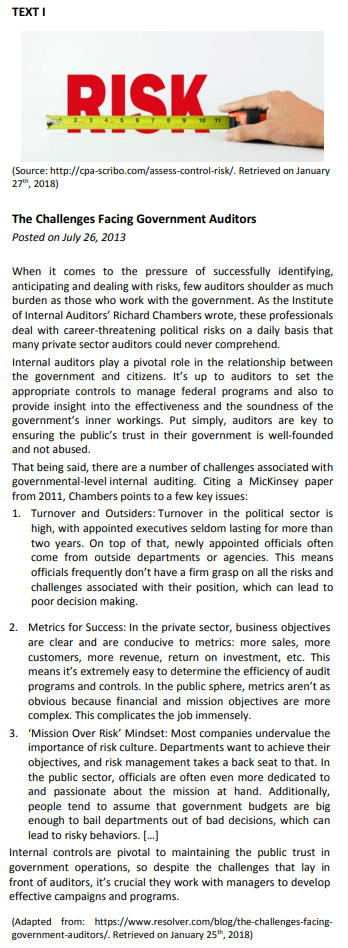
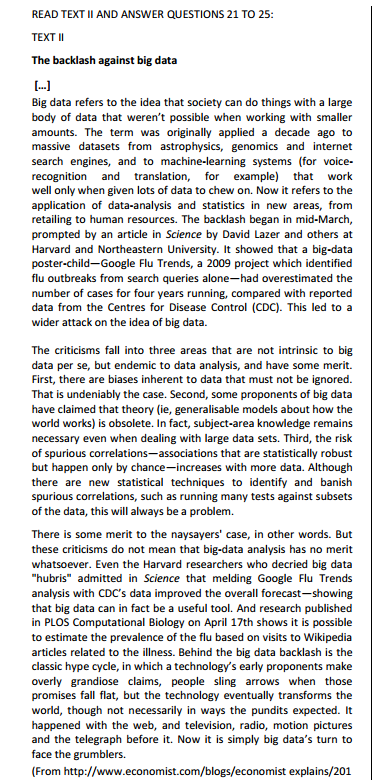
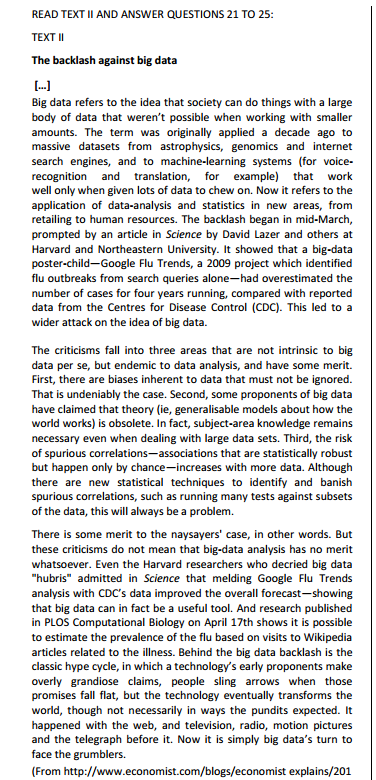
READ TEXT I AND ANSWER QUESTION.


Em um programa esportivo, um comentarista de futebol fez a seguinte afirmação sobre o momento vivido pelo time X:
Se o time X não se classificar para a Copa Prata e perder o clássico do final de semana, então seu treinador será demitido na segunda-feira.
Do ponto de vista lógico, uma forma equivalente de fazer essa afirmação é:
e o veículo ultrapassar os 50 km/h, então seu motorista será multado.
Uma afirmação equivalente à afirmação anterior é:
Um avô aconselha a seu neto:
“Se você for estudioso e esforçado, ou se for paciente e ambicioso, você terá sucesso na vida."
Se o conselho do avô for considerado uma proposição verdadeira, o neto pode concluir que, para ter sucesso na vida,
Seja a seguinte proposição: “Se um profissional é formado em Administração, então ele está apto a realizar determinado trabalho." Pode-se afirmar que
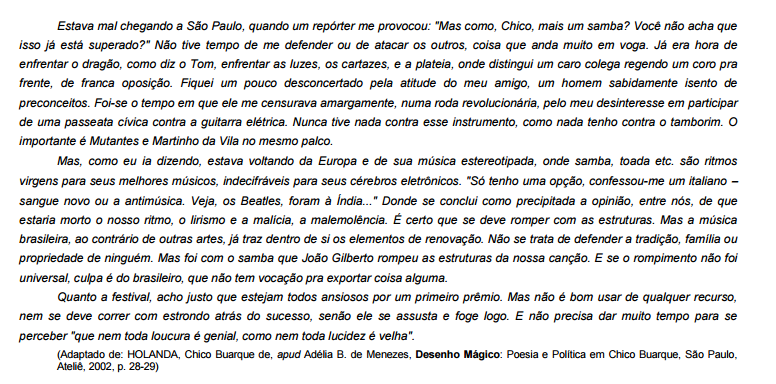
Considere que a afirmação I é falsa e que as demais são verdadeiras.
I. Se Bernardo é músico, então Andreia é cantora.
II. Cátia é baterista e Bernardo é músico.
III. Ou Danilo é violonista, ou Cátia é baterista.
A partir dessas afirmações, é correto concluir que
De acordo com a lei n. 12527/2011 é dever do Estado garantir o direito de acesso à informação, que será franqueada, mediante procedimentos objetivos e ágeis, de forma transparente, clara e em linguagem
Leia o caso hipotético a seguir
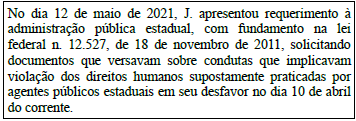
Diante do contexto narrado, qual deve ser a conduta da administração pública e por qual razão?
Com base no que dispõe a Lei nº 12.527/2018, que regula o direito de acesso a informações, considere as seguintes assertivas:
I. É vedado o anonimato do solicitante, devendo o requerimento conter a identificação do requerente.
II. Afigura-se obrigatória a apresentação das razões determinantes da solicitação, podendo ser indeferidos pedidos que não
apresentem a necessária justificativa.
III. Cabe ao órgão detentor da informação avaliar a presença de razões de segurança nacional que impeçam ou limitem a
divulgação, impondo, quando cabível, sigilo e seu prazo de duração.
IV. O serviço de busca e fornecimento de informação é gratuito, podendo ser cobrado apenas o valor correspondente aos
custos de reprodução de documentos.
Em tendo sido levantado o segredo de justiça de determinado processo criminal que despertava curiosidade do cidadão, este submeteu pedido de acesso, sob o pálio da Lei de Acesso à Informação, alegando que entre as informações básicas do processo não constaram os nomes das vítimas.
Esse pedido deve ser:
De acordo com a lei n. 12.527/2011, a autenticidade se refere à qualidade da informação que